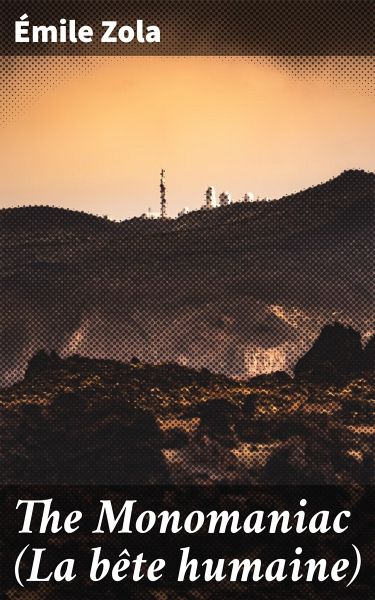
The Monomaniac (La bête humaine) (eBook, ePUB)
Enriched edition. A Dark Tale of Obsession and Murder in 19th Century Parisian Society
Kommentar: Ainsworth, Autumn / Redaktion: Good Press / Übersetzer: Vizetelly, Edward
Versandkostenfrei!
Sofort per Download lieferbar
0,49 €
inkl. MwSt.
Weitere Ausgaben:

PAYBACK Punkte
0 °P sammeln!
In "The Monomaniac" (La bv(TM)te humaine), vâmile Zola delivers a gripping exploration of the interplay between industrialization and human morality. Set against the backdrop of France's expanding railway system, Zola employs his signature naturalist style to delve into the psychologies of its characters, particularly the tormented locomotive engineer, Jacques Lantier. The novel is marked by its vivid descriptions and meticulous attention to the social and environmental influences shaping human behavior, reflecting Zola's belief that individuals are often prisoners of their circumstances and ...
In "The Monomaniac" (La bv(TM)te humaine), vâmile Zola delivers a gripping exploration of the interplay between industrialization and human morality. Set against the backdrop of France's expanding railway system, Zola employs his signature naturalist style to delve into the psychologies of its characters, particularly the tormented locomotive engineer, Jacques Lantier. The novel is marked by its vivid descriptions and meticulous attention to the social and environmental influences shaping human behavior, reflecting Zola's belief that individuals are often prisoners of their circumstances and hereditary instincts'-a theme prevalent in the broader literary movement of realism during the late 19th century. Zola, a prominent figure in the Naturalism literary movement, drew upon his own experiences in an industrial society which profoundly influenced his work. His investigations into social issues, combined with a strong political consciousness, are evident throughout "The Monomaniac," showcasing his commitment to displaying the darker aspects of society, including violence, obsession, and moral decay. Zola's extensive literary research and personal experiences with the working class and their struggles are palpable throughout the novel. For readers interested in a profound psychological exploration of humanity against a backdrop of societal transformation, "The Monomaniac" is highly recommended. Zola's deft narrative and intricate character development challenge us to reflect on the complexity of the human condition, making this work not only a compelling narrative but also a significant commentary on the era's socio-economic climate. In this enriched edition, we have carefully created added value for your reading experience: - A succinct Introduction situates the work's timeless appeal and themes. - The Synopsis outlines the central plot, highlighting key developments without spoiling critical twists. - A detailed Historical Context immerses you in the era's events and influences that shaped the writing. - An Author Biography reveals milestones in the author's life, illuminating the personal insights behind the text. - A thorough Analysis dissects symbols, motifs, and character arcs to unearth underlying meanings. - Reflection questions prompt you to engage personally with the work's messages, connecting them to modern life. - Hand-picked Memorable Quotes shine a spotlight on moments of literary brilliance. - Interactive footnotes clarify unusual references, historical allusions, and archaic phrases for an effortless, more informed read.
Dieser Download kann aus rechtlichen Gründen nur mit Rechnungsadresse in A, B, BG, CY, CZ, D, DK, EW, E, FIN, F, GR, H, IRL, I, LT, L, LR, M, NL, PL, P, R, S, SLO, SK ausgeliefert werden.













